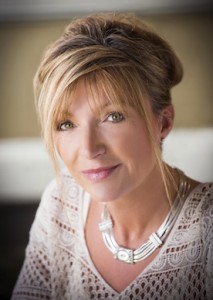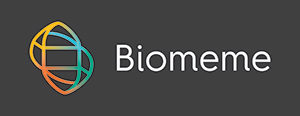Everyone, Meet Joanne Lang of AboutOne
Source: Keystone Edge
Joanne Lang of AboutOne
 Two years ago, Keystone Edge interviewed Joanne Lang about her company, AboutOne, then in its infancy. We are revisiting her now that the company is about to launch a new app, Family Calendar, which combines their cloud platform with a calendar-based organizing system for everything from medical records to memories to home inventories.
Two years ago, Keystone Edge interviewed Joanne Lang about her company, AboutOne, then in its infancy. We are revisiting her now that the company is about to launch a new app, Family Calendar, which combines their cloud platform with a calendar-based organizing system for everything from medical records to memories to home inventories.
AboutOne was founded in 2010, but the original idea for this new calendar began long before that, when she was still an executive with SAP, a global software company. While raising four young sons, she realized that having medical records at one’s fingertips was important — especially when one of her children had a medical emergency and she couldn’t produce the right information en route to the hospital.
Lang has spent most of the time since the birth of the company focusing on the cloud platform, interviewing thousands of women, and creating a less complex version of the new product.
Since launching in 2010, Lang and her company have gained international recognition, including being named one of the 150 top tech companies in the world by the Web Summit, held annually in Dublin, Ireland, for two years running. Lang has also been a StartupNation winner (2010), one of Forbes Top 10 Female Entrepreneurs to Watch (2011) and a START winner (2012).
A native of Yorkshire, England, with degrees in accounting, computer science and new product development, Lang estimates she now has about 250,000 customers, and expects to reach one million this year.
What inspired you to start AboutOne?
 When I worked for SAP and they sent me all over the world, I was always missing information about myself when I needed it. I had an idea to organize all that information, but technically I couldn’t understand how to develop this. These were the days when you put data on CDs and you needed your PC, so it didn’t make sense to develop that.
When I worked for SAP and they sent me all over the world, I was always missing information about myself when I needed it. I had an idea to organize all that information, but technically I couldn’t understand how to develop this. These were the days when you put data on CDs and you needed your PC, so it didn’t make sense to develop that.
Then SAP assigned me to work on their first cloud and mobile products, and I realized this was exactly how you could develop this kind of application. The education I got at SAP was phenomenal. I worked in each department. I couldn’t have asked for a better grounding.
So I had this pain point and I had this idea for a solution. But I had a fear of failure. The idea was always there, I knew what to do — I’d done plans and a lot of research. But I didn’t know how to raise money; I didn’t know how to start.
Then one of my sons had a health emergency. I was working from home that day. I ran out of the house; I had my car keys and my phone. I drove to the doctor’s office and they put my son in the ambulance there. The personnel needed information on the medications he’d been taking. The information was in my kitchen, in an Excel file on my laptop, but in the ambulance I couldn’t get to it.
We were in the hospital in Bryn Mawr for about three weeks after that, and I kept asking myself why — when I have all this information in places I put it, in Walgreen’s, etc. — I couldn’t get to it?
The second question was why, when I had all these apps for managing health records, wasn’t I using them?
I spent about a year and a half building a minimal viable product. We built a website and asked thousands of women all these questions about what they wouldn’t use and why. The answer is so obvious! The information needs to be managed from the tools we use every day; it needs to come from my calendar.
All the events happening in my life — a purchase for my home, health appointments for my children, memories (pictures and videos) — I’ll see first on my calendar.
One of the things I thought of for years was that CEOs of companies have dashboards to help them see where they are in their lives. When I analyzed the information I got, I realized that people wanted this kind of calendar/to-do application on their phones; if they go to a website, they wanted it like a CEO dashboard. What we wanted to build was an app for the CEO of the house, to get organized.
We launched our minimal viable product in July 2010 and soon had thousands of people sign up. Having that allowed me to go on and raise capital.
What we built is the world’s only family management cloud platform, and we can build apps on it.
How did you get started?
We raised about $5 million in capital from a number of famous investors, including Golden Seeds (an early-stage investment firm dedicated to empowering women entrepreneurs); we had 400 women angels invest in us.
I had people who helped me but who had other jobs. I found a technical co-founder, Nathan Bayles.
Did you take advantage of any resources in your area to get the company off the ground?
Yes, Ben Franklin Technology Partners of Southeastern PA (BFTP/SEP) invested about $245,000 in us in several rounds. I love them! Alan Kraus, director of investments for IT, was very good to me. I was a first-time entrepreneur, so I went to him many times to ask how to raise money, etc. Then he submitted an application for me to be a fellow at AWE (Association of Woman Entrepreneurs) in Philadelphia. They helped me with presentations, with venture capital — some of the women in the group invested in my company. It was the best thing ever. My experience with BFTP/SEP has been tremendous.
I have had help from the Chester County Economic Development Council, the Founders Factory in Philadelphia, and I’m now a mentee in the Forum of Executive Women in Philadelphia.
We’re located in the Walnut Street Labs in West Chester, an incubator/accelerator. They have people come in and do presentations every week, and the founders have their own investment group that invests in people who have ideas but can’t leave their jobs. It’s a brilliant concept.
How has AboutOne grown?
We have 12 employees now. We are launching our first “family calendar mini-app” on an iOS. It lets you file all your information, so if you’re at a doctor’s, for example, it will pull up medication or prescriptions; if you go to an event like a child’s ball game, it will automatically back up pictures and videos against that event. You can ask it to show all the scouting events from last year, or all the swimming lessons your kids has had. All of this is connected to your calendar. It’s beautiful, it’s very functional, and it integrates with Google.
Building a cloud platform is like building a house. You have to dig the foundation, do the wiring, etc. When you’re finished, you can start putting the flowers in the garden and the curtains in the windows. That’s where we are now.
We brought in one of the best user-experience designers to build the apps: Jason McGowan, whose office is in Utah. He joined my team about two months ago.
We have about a quarter of a million customers, and we should have a million this year. We get about 100 to 2,000 a day, depending on what we’re doing. The demographic is Gen X, the low end of the Baby Boomers and the high end of Millennials — mostly women. Generally they’re parents or caregivers, “pet parents” (people managing information on their pets; I didn’t expect that) and military families. We have some international customers, but our focus is the United States right now.
What has been the biggest challenge?
Finding the right team. It’s really hard, on a tight budget, to find the right people who have the right passion and the same drive you do. If you get the wrong person, it sets you back a month. I didn’t realize how hard that is. I have a wonderful team, but getting there had a lot of ups and downs.
The other challenge was learning to balance being a mom and running a company. Having a company is like having a fifth child. It’s a roller coaster you can’t get off. Balance and persistence are important.
What’s next for AboutOne?
We’ll be launching the new calendar in April.
We just signed a huge partnership agreement with FamilySearch, the genealogical organization, which I’m very excited about.
This year, we’re able to allow other companies to use our cloud platform to build their own apps, without having to build their own platform from scratch. I think 2015 is going to be our year.




